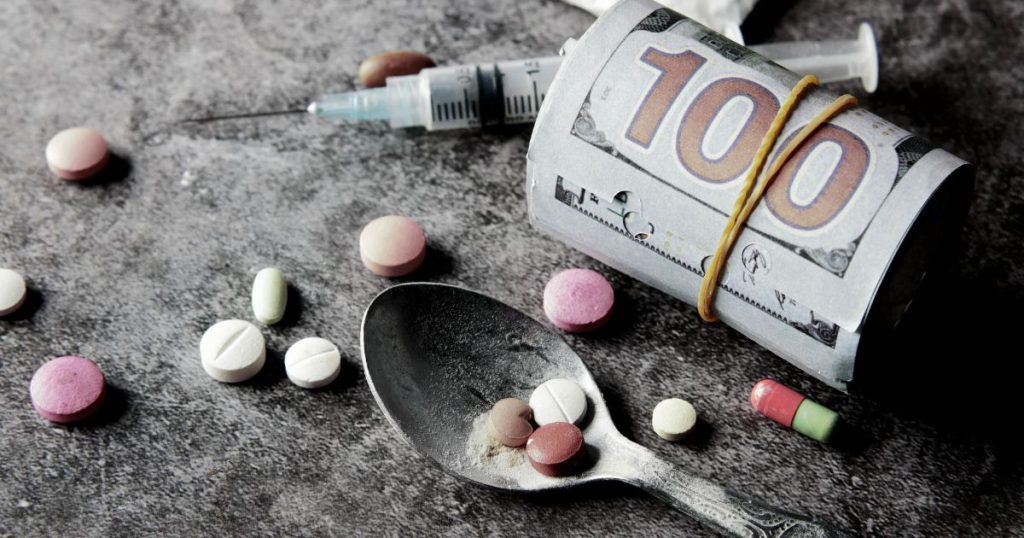Addiction Treatments Center In Lahore
Addiction is a chronic relapsing brain disorder characterized by compulsive engagement in rewarding stimuli despite adverse consequences. The word addiction does not have a single definition, but there are some commonalities among the definitions. These commonalities include compulsive engagement in the use of the substance or behavior, despite adverse consequences and relapse. To treat Addiction Treatments center must address all aspects of the individual’s life. Treatment can include behavioral therapy, cognitive-behavioral therapy (CBT), and medication. An addiction treatment center is the first place where people suffering from debilitating addictions must go in order to recover.

Neuroscientists now believe that addiction involves changes in the brain’s reward system, which many drugs or behaviors can trigger. Addiction is not just about the use of drugs and alcohol. It can also be about gambling, sex, shopping, gaming, and social media. Habit can be challenging to recognize because it typically starts with a behavior that is legal or socially acceptable in society. This can make it more difficult for people to seek help for their addiction.
Symptoms Of Addiction
Addiction is a severe problem that affects millions of people. It can have physical and psychological effects on the person suffering from it.
Many types of addiction include substance abuse, gambling, food addiction, sex addiction, and more. While each style has its symptoms and associated problems, they all share one thing: they are all difficult to overcome without professional help.
Many people struggle with addiction because they do not know how to get help for their condition or how to recover from their addiction. They may also be afraid to seek help for fear of being judged or looked down upon by society or family members.
Some of the symptoms of addiction are:

- Irritability
- Anxiety
- Depression
- Loss of control
- Withdrawal symptoms
- Negative mood swings
Types of Addiction
Addiction is a complex medical condition that requires the proper Addiction Treatment center in Lahore to break the cycle of addiction.
The most common types of addiction:
there are many ways to help people with an addiction, but one of the most effective ways is through cognitive behavioral therapy.
Substance Addiction
Substance addiction is a widespread issue that affects many people across the world. It can be classified into different types, such as alcohol addiction, drug addiction, gambling addiction, and sex addiction.
People who are addicted to substances tend to experience withdrawal symptoms when they stop taking their drugs or alcohol. This can lead to depression, anxiety,, and suicidal thoughts. However, there are many treatment options available for those fighting substance addictions.
Gambling Addiction
Gambling addiction is a type of addiction that can be as dangerous as any other. It is characterized by the inability to control or stop gambling. This can lead to a person losing their house, family, and job.
Gambling addiction is one of the most common addictions today, but it has been around for centuries. Its roots are found in religious rituals, and it has been used to make people feel more connected with the world around them.
The types of addictions vary from person to person based on what they find enjoyable or fulfilling. Some people may find that gambling helps them deal with anxiety and depression.
Food Addiction
There are many different types of addictions, including food addiction. It is a severe issue that affects millions of people worldwide.
This type of addiction can be defined as “a chronic disorder that involves an inability to control eating despite the negative consequences.” People with food addiction have difficulty controlling their thoughts and behaviors around food. They often overeat and engage in dangerous weight-loss tactics such as purging, fasting, and vomiting.
The first step to overcoming this type of addiction is recognizing it for what it is. Understanding the signs and symptoms is essential to taking the necessary steps toward recovery.
Internet Addiction
Internet addiction is a disorder that has been associated with the misuse of the internet. It is characterized by impaired control over use, preoccupation with the internet, and withdrawal symptoms when use is reduced or stopped.
Internet addiction is a growing issue in our society. It’s most commonly found in young adults with internet access. Internet addiction can manifest itself in various ways, such as increased time spent on social media, increased time spent on gaming, etc. It can cause people to neglect their responsibilities and relationships with family members or friends.
There are many subtypes of Internet addiction, like gaming addiction and social media addiction.
Treating Substance Use Disorder
Substance use disorder is one of the most challenging conditions to treat. But with the help of medical detoxification, an individual can quit or control their substance use disorder.
In medical detoxification, people are medically supervised and monitored while they withdraw from substances. The process occurs in a controlled hospital environment where they can receive care and support.
Treatment for substance use disorder is complicated to quit or control because the addiction takes hold of an individual’s mind and body. With medical detoxification, individuals can start over with a clean slate by ceasing all substances for a certain period.
Residential Treatment
Residential treatment is a process of providing medical and emotional care to someone who is struggling with addiction. The treatment process includes detox, group therapy, and one-on-one counseling.
The residential treatment facility provides a safe environment where the individual can focus on getting better without outside distractions. The individuals can live in a community that understands their needs without judgment or criticism.
Medications

As addiction progresses, the brain’s reward system becomes less responsive. This means that even if a person is exposed to the substance, they are not as likely to get the same high.
The medication is designed to reduce cravings for the substance and reduce symptoms of withdrawal. It can also help with relapse prevention and treatment adherence.
Many medications are available for addiction treatment, but some have side effects that make them less desirable than others. For example, some drugs can cause sleepiness or weight gain in addition to cravings and withdrawal symptoms.
Dr. Syed Zahid Qutub is a certified psychologist and addiction specialist with vast experience in treating substance abuse, drug addiction, and behavioral addiction. Dr. Qutub’s expertise in addiction treatment helps you or your loved ones overcome their addiction problems with a personalized therapy program that will help you or them get their life back on track. His addiction treatment center in Lahore is the best facility for addiction patients looking for reliable treatment.
